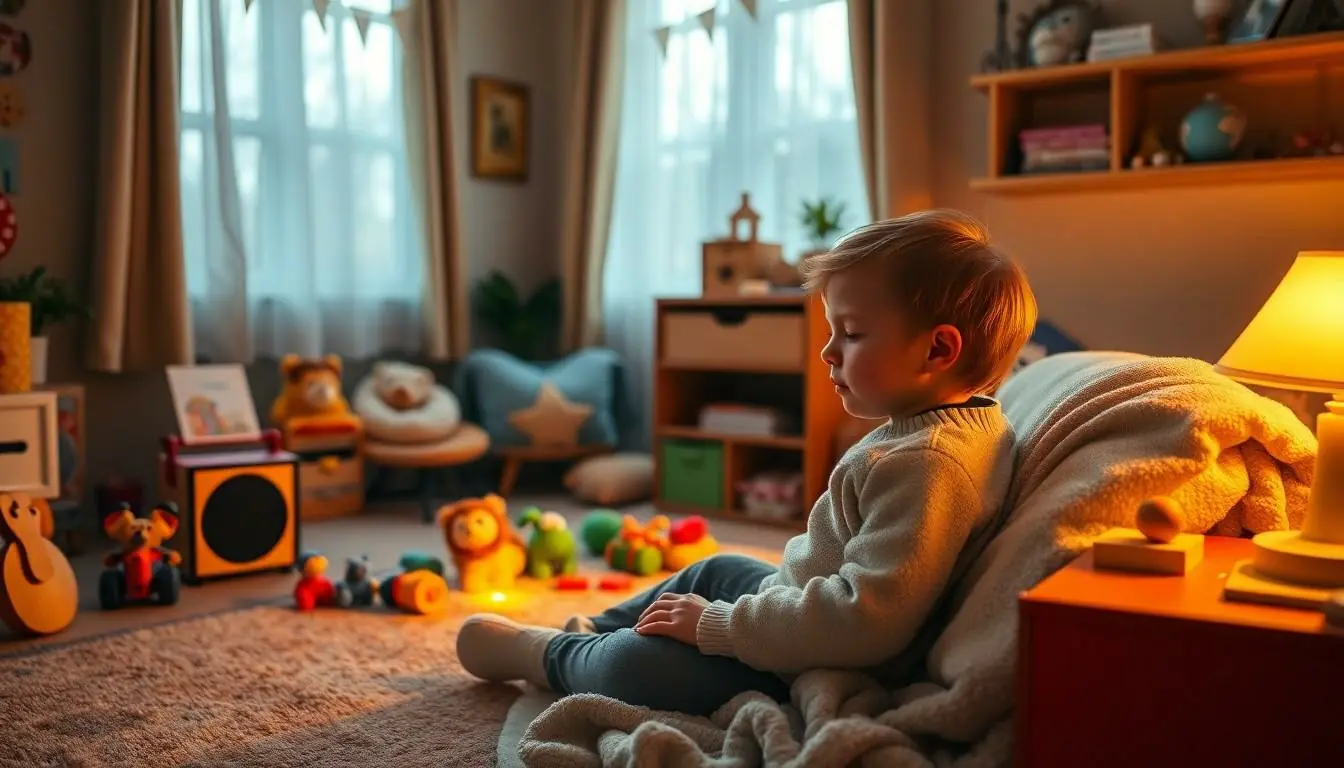In a world buzzing with noise and chaos, finding a moment of peace can feel like searching for a needle in a haystack. Enter relaxing classical music for kids, the magical soundtrack that transforms any room into a serene sanctuary. Imagine your little ones drifting off to sleep, their worries melting away like ice cream on a sunny day. With soothing melodies and gentle harmonies, classical music isn’t just for stuffy concerts—it’s a secret weapon for calm.
Table of Contents
ToggleBenefits Of Relaxing Classical Music For Kids
Relaxing classical music offers numerous benefits for children, significantly enhancing their daily experiences. This genre creates a serene backdrop, fostering an ideal space for development.
Enhancing Concentration
Classical music promotes improved focus in children during study sessions and homework time. Studies indicate that listening to compositions, like Mozart’s sonatas, enhances cognitive functions, aiding memory retention and problem-solving. Children demonstrate greater productivity when engaging with tasks while calming melodies play in the background. Maintaining a tranquil environment decreases distractions, allowing children to immerse themselves in learning. Music with gentle tempos helps regulate brain activity, reinforcing ability to concentrate effectively.
Promoting Emotional Well-Being
Emotional health receives a noteworthy boost from classical music’s soothing effects. Soft melodies help children manage anxiety and stress, creating a comforting atmosphere. Research shows that exposure to melodic compositions contributes to emotional regulation, allowing kids to express their feelings. By listening, children often feel an increased sense of security and well-being. Calming music can alleviate feelings of sadness, fostering resilience and boosting overall mood. Engaging with this musical genre nurtures emotional intelligence, equipping children to navigate their feelings more adeptly.
Recommended Pieces Of Relaxing Classical Music


Relaxing classical music offers a variety of compositions that appeal to children’s soothing needs. Here are some recommended pieces that stand out.
Mozart For Young Listeners
Mozart’s compositions serve as a great introduction to classical music for kids. His “Piano Concerto No. 21” captivates with its gentle melodies, making it ideal for relaxation. “Eine kleine Nachtmusik,” known for its lively yet calming themes, also enchants young listeners. Children may find comfort in “Piano Sonatas,” particularly the serene “Sonata in C Major.” The accessibility of these pieces creates an inviting atmosphere for children to explore music’s calming effects.
Debussy’s Soothing Melodies
Debussy’s music excels at creating peaceful environments for kids. The piece “Clair de Lune” offers ethereal sounds that transport listeners to tranquil landscapes. “Reverie” showcases dreamy harmonies, perfect for winding down after a busy day. Children may enjoy “Garden in the Rain,” which captures the gentle essence of nature. These compositions showcase Debussy’s unique ability to touch emotions and foster relaxation, encouraging children’s imaginations to flourish.
How To Create A Relaxing Music Environment
Creating a relaxed environment for children involves intentional elements. Mood lighting plays a crucial role; soft, dimmed lights promote calmness. Using pillows and soft blankets provides comfort, making the space inviting. Aromatherapy with calming scents, such as lavender or chamomile, enhances the overall atmosphere.
Instrumental classical music can serve as the background for relaxation activities. Select tracks that resonate with children’s preferences while remaining soothing. Ensure the volume remains low, encouraging a tranquil ambiance that doesn’t overwhelm. Decorate the space with nature-inspired elements, fostering a peaceful setting that complements the music.
Setting The Right Atmosphere
Establish a sense of tranquility by designing a designated listening area. This area should have minimal distractions. Soft carpets or rugs create a cozy feel while absorbing sound. Incorporate elements of nature along with calming visuals, such as images of serene landscapes or soothing artwork. Maintaining a clean, uncluttered space aids in reducing stress and enhances focus. Soundproofing with curtains or wall hangings can further diminish noise, aiding relaxation.
Incorporating Music Into Daily Routines
Integrating classical music into daily life strengthens its benefits. Start each day with a gentle musical selection; morning routines can feel more enjoyable. Consider including music during mealtimes, encouraging peaceful family gatherings. Reading time paired with soft melodies allows children to engage better with stories. Incorporate music during homework sessions, enhancing concentration and retention of information. Lastly, bedtime rituals enhanced with relaxing tunes signal time for rest, promoting a peaceful transition to sleep.
Tips For Parents
Creating a calming musical atmosphere for children requires thoughtful selection and engagement strategies. Parents can enhance their child’s experience with relaxing classical music.
Selecting The Right Pieces
Choose compositions known for their soothing qualities. Mozart’s “Piano Concerto No. 21” and Debussy’s “Clair de Lune” stand out as excellent choices. These pieces create peaceful environments conducive to relaxation. It’s essential to explore various composers and styles to find what resonates best with each child. Consider creating playlists that mix different soothing tracks. Tailoring selections according to a child’s preferences fosters a deeper connection to the music.
Engaging Kids With Music
Encourage children to participate in the music experience. Start by playing music during quiet activities like reading or drawing. Pair the music with storytelling sessions, allowing children to visualize the stories inspired by the melodies. Provide opportunities for kids to express their favorite pieces, letting them lead discussions about what they enjoy. Involve them in selecting music for specific activities. Building this connection encourages a lifelong appreciation for classical music while fostering emotional well-being.
Relaxing classical music offers children a unique pathway to tranquility and emotional growth. By integrating soothing melodies into their daily routines, parents can create an environment that nurtures focus and reduces stress. The right pieces not only enhance concentration but also promote a sense of calm that helps children navigate their emotions.
Encouraging engagement with music fosters a lifelong appreciation and deeper connection to this enriching genre. With intentional practices and thoughtful selections, classical music can transform daily experiences into opportunities for relaxation and learning, making it an invaluable tool for every child’s development.



